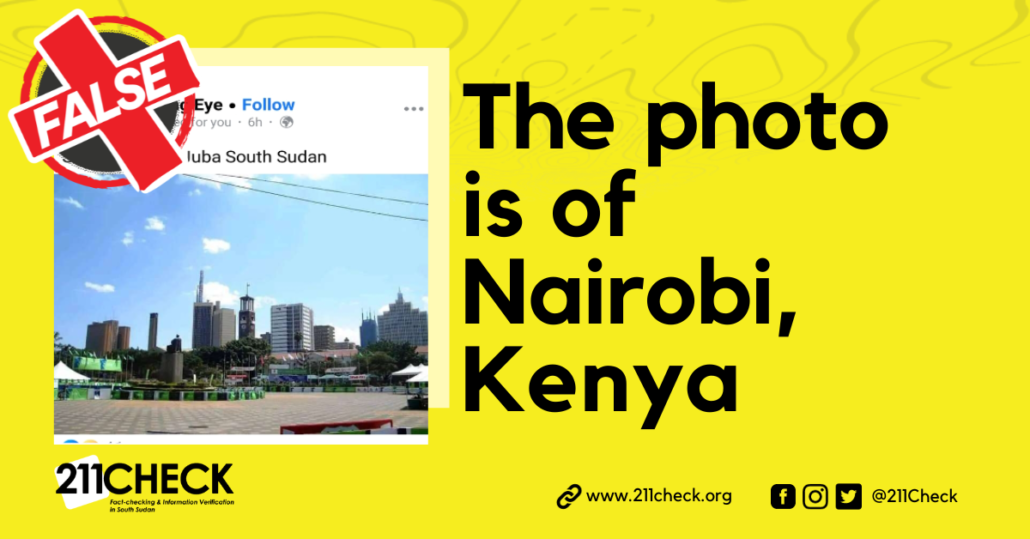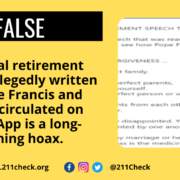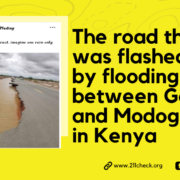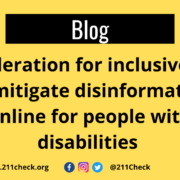Fact-check: Is this a photo of Juba, South Sudan?
No, the photo is of Nairobi, Kenya.
Writer: Nancy Ceasar
A Facebook post with an image purporting to show Juba, South Sudan, is false.
The image, which shows an urban location with tall buildings, was posted by a Facebook page, Ruweng Eye, on 9 October 2023 with a post that read: ‘Somewhere in Juba, South Sudan.’
The post attracted several comments with differing opinions on where the image was taken, prompting 211 Check to investigate.
Claim Verification:
211 Check carried out a reverse search on the picture using Google Lens, which returned several instances where the image has been shared as being of Nairobi, Kenya.
For instance, in February 2021, the image was featured in an article by developingtelecoms.com titled: “Opera Pilots dedicated chat service in Kenya.”
Similarly, in July 2020, Ghana Medicals shared the same picture with a headline: “Things are elephant: the effects on COVID-19 in Nairobi low-income areas.”
The image has also been shared here, here and here on articles referencing Nairobi, Kenya.
Nairobi is Kenya’s political and economic capital and also the largest city. The name ‘Nairobi’ comes from the Maasai phrase’ Enkare Nyrobi’, which translates to ‘cool water.’
Juba, on the other hand, is one of the world’s newest cities and became South Sudan’s capital when the nation became independent on July 9, 2011. Juba is located on the white Nile River and is the largest city in South Sudan.
Conclusion:
211 Check finds the post false and misleading. The picture is of Nairobi, Kenya and not Juba, South Sudan.
This fact check was published by 211 Check with technical support from Code for Africa’s PesaCheck newsdesk through the African Fact-Checking Alliance(AFCA).
To ensure accuracy and transparency, we at 211 Check welcome corrections from our readers. If you spot an error in this article, please request a correction using this form. Our team will review your request and make the necessary corrections immediately, if any.
It’s vital to fight misinformation and disinformation in the media by avoiding fake news. Don’t share content you’re uncertain about. False information can harm and mislead people, risking their lives—Fact-check before sharing. For more details, visit https://211check.org/ or message us on WhatsApp at +211 917 298 255. #FactsMatter.










Leave a Reply
Want to join the discussion?Feel free to contribute!